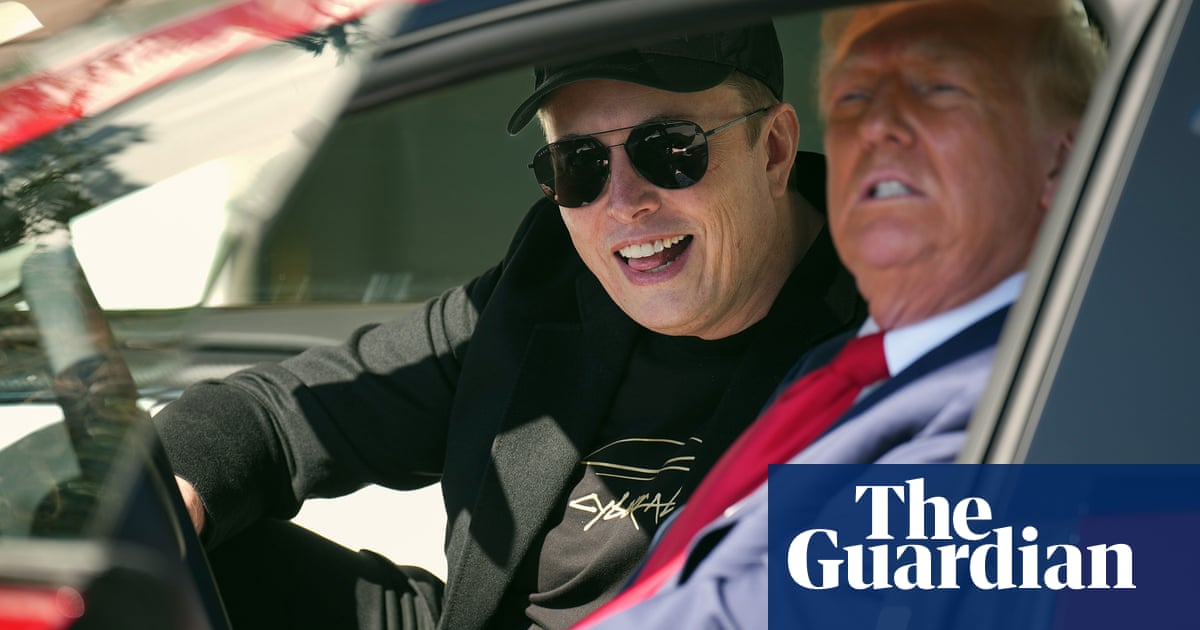An anonymous group of Adelaide activists will keep fighting to stop Elon Musk’s Tesla from setting up a battery factory in the suburbs.
Tesla has beentargeted globallyby protesters furious at Musk’s work with the Trump administration, and at his ideology which the billionaire often espouses through his social media platform, X.
This week that angerboiled overin the South Australian capital, half a world away from Washington DC.
About 95% of the nearly 1,000 submissions were opposed to a proposal to build aTeslashowroom and battery recycling and repurposing factory. Many expressed “anti-Tesla and anti-Elon Musk sentiment”.
For decency, the local council redacted the language in some submissions to describe Musk and Tesla.
“We should not support and put money in the pockets of a [redacted] who openly [redacted] salutes, is [redacted] human,” said one.
The world’s richest man has announced he will leave his role in the department of government efficiency, which has slashed jobs and funding for US government agencies with often chaotic and devastating effects. Heis pivotingback to his businesses, including Tesla, amid slumping sales.
Meanwhile in Adelaide, the Marion city council overrode community objections andapproved the factory projectto proceed to the next stage, which will need state government approval. The council said the project would bring in 100 jobs and millions of dollars to the community.
But the protest movement “Trees not Teslas” is determined to fight on.
While conservation groups and others were protesting against the Tesla project because of the need to remove trees on the land where the plant would be built, Trees not Teslas also fired people up over Musk himself.
“Neon” from Trees not Teslas did not want to use his real name, in part for fear of reprisals and in part because the group considers itself a collective.
He said the traction the group got was “wild”, with their website getting thousands of views, but he acknowledged it was impossible to work out how much influence they ultimately had.
Neon said the fight will continue, as the state government considers whether to approve the council’s proposal to revoke the site’s status as community land.
Sign up for Guardian Australia’s breaking news email
“We just move that further up. We have to. We move that into actions for the state government,” Neon said.
“We spread more awareness. We try to get more people involved. It now becomes not just a council issue but a fundamental state issue.”
He said they started the campaign primarily to protect the trees on the site. “… our main focus was the trees … we’re looking to preserve green spaces,” he said.
“We’re very pro-electric vehicle and pro-green energy.
“But the industry that destroys green spaces is … green in name only.”
The council argued that the space had not been publicly accessible since 2016 because of contamination. Neon said trees can help remediate the land.
He also echoed comments made by the councillor Sarah Lascombe, who voted against the proposal, that the factory would only recycle or repurpose Tesla batteries, when most people use other brands.
While the discussion has centred around electric vehicle batteries, it is possible the site could also recycle and repurpose Powerwall batteries.
Guardian Australia has contacted Tesla for comment.
Neon said the council voting eight to three to seek state government approval despite the community objections made the public consultation process seem like a box-ticking exercise.
The mayor, Kris Hanna, said the project would bring jobs and an income stream into the community, and that Tesla would just set up elsewhere, if not in Marion. Tesla, Hanna said, had pledged to retain most significant trees and replace more trees than it was required to.
Neon said the established trees would be replaced with saplings, removing many of their benefits.
The state premier, Peter Malinauskas, said earlier this week that major industrial developments were welcome in the state and that while he “violently” disagreed with Musk’s politics, they were “his prerogative”.
A state government spokesperson said the government welcomed investment and job creation in SA and would consider the proposal.
